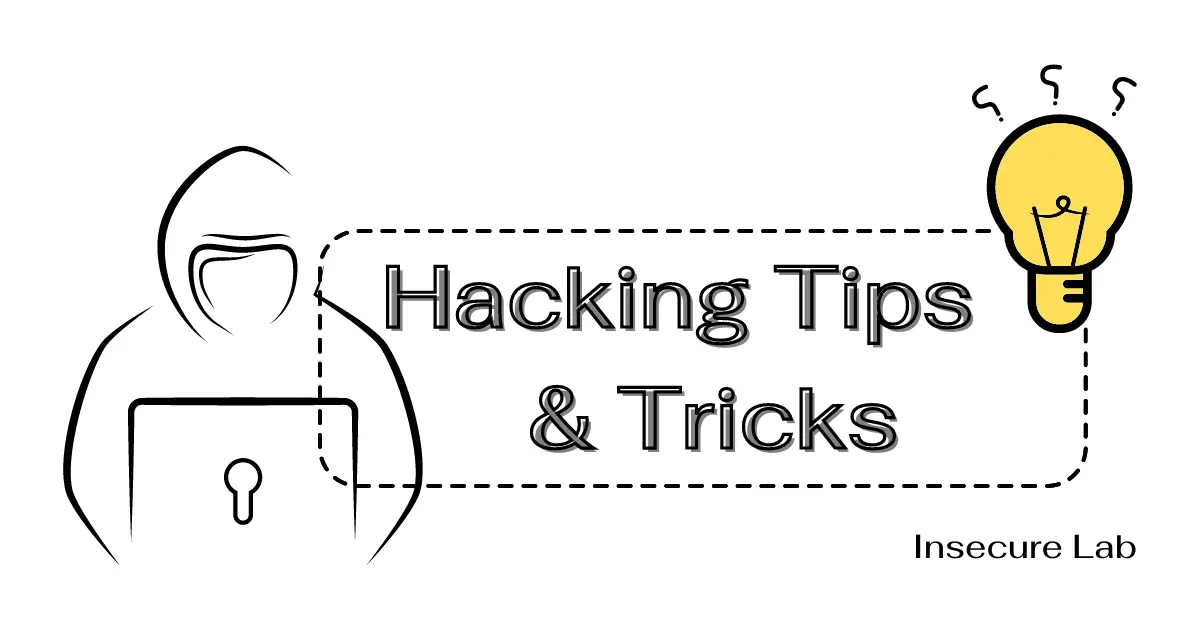🔍 Search
📥 Subscribe
Hacking Tips and Tricks

Table of Contents
In this guide, we will look at essential ethical hacking tips and advanced hacking tricks to boost your cyber security skills. Learn proven techniques to effectively secure systems.
Fundamental Techniques
For future ethical hackers and cyber security experts, learning key techniques is important. This helps protect systems and stay ahead of threats. Below are fundamental hacking concepts to learn, along with actionable tips to strengthen your skills:
1. SQL Injection (SQLi)
💡Ethical hackers must master SQL injection techniques to identify vulnerabilities in database-driven applications. This skill involves creating input that takes advantage of weak data checks. This can reveal hidden data and show the need for secure coding practices.
Practice using tools like SQLMap and learn secure coding practices, such as parameterized queries.2. Cross-Site Scripting (XSS)
💡Understanding XSS attacks is crucial as they allow malicious scripts to be injected into web pages. This technique demonstrates the importance of robust sanitization and content security policies, helping to prevent unauthorized code execution on user browsers.
Test websites for XSS vulnerabilities and implement input validation/output encoding.3. Phishing
💡Phishing attacks use deceptive communications, such as emails or fake websites, to trick users into revealing sensitive information. Recognizing these tactics reinforces the significance of user education, secure email filters, and constant vigilance against social engineering.
Use phishing simulation tools to train teams and adopt email filtering solutions.4. Denial-of-Service (DoS)
💡A DoS attack overwhelms systems with excessive traffic, leading to service disruption. Ethical hackers learn to find and fix these attacks. They keep systems running well, even in tough situations.
Study traffic analysis tools and deploy rate-limiting or CDNs for mitigation.5. Brute Force
💡A brute force attack systematically tests numerous password combinations until it finds the correct one. Mastering this technique shows how important it is to have strong, unique passwords. It also highlights the need for good rate-limiting strategies to keep authentication processes secure.
Encourage strong password policies and multi-factor authentication (MFA).6. Social Engineering
💡Social engineering attacks exploits human psychology to manipulate individuals into divulging confidential information. By studying these tactics, ethical hackers can develop countermeasures and enhance training programs to bolster overall security awareness.
Train teams to recognize red flags and verify requests through secure channels.7. Cryptography
💡A thorough grasp of cryptography is essential for encrypting data and securing communications. This skill covers key management, encryption protocols, and the implementation of secure practices to protect sensitive information.
Learn encryption algorithms (AES, RSA) and hashing techniques (SHA-256) to protect data integrity.Advanced Techniques
Staying ahead of cyber criminals requires mastering advanced hacking techniques. These skills not only help identify vulnerabilities but also fortify defenses. Below are critical areas to focus on, along with actionable suggestions to elevate your expertise.
1. Wireless Hacking
💡This technique focuses on identifying vulnerabilities in wireless networks, including Wi-Fi protocols and encryption weaknesses. Mastery in wireless hacking ensures that network configurations remain secure, preventing unauthorized access and eavesdropping.
Use tools like Aircrack-ng and secure networks with WPA3 encryption.2. Bluetooth Hacking
💡Bluetooth hacking involves probing Bluetooth devices for security flaws. Learning these methods helps in securing wireless communications between devices and mitigating risks associated with unauthorized data access.
Monitor connections with tools like Bluetooth Sniffer and disable discovery mode.3. Man-in-the-Middle (MitM)
💡In this attack, an adversary intercepts and potentially alters communications between two parties. Mastery of MitM techniques underlines the need for strong encryption, secure authentication, and vigilant network monitoring.
Deploy encryption (HTTPS, VPNs) and use intrusion detection systems (IDS).4. Zero-Day Exploits
💡Zero day attacks target unknown vulnerabilities before patches are released. Understanding these attacks drives home the importance of proactive vulnerability management and timely security updates.
Stay updated on threat intelligence platforms and prioritize patch management.5. Malware Analysis
💡This skill entails examining malicious software to understand its behavior, propagation methods, and system impact. Effective malware analysis aids in developing robust countermeasures and refining overall defense strategies.
Use sandbox environments (Cuckoo Sandbox) and tools like IDA Pro.Tips and Tricks
Below are some expertly curated collection of hacking tricks and tips with real-world examples to illustrate key concepts.
Pro Tips for Beginners
Here are 10 key points on how to hack for beginners:
- Understand the basics of computer networks and systems to identify potential vulnerabilities.
- Familiarize yourself with common hacking techniques like phishing, social engineering, and SQL injection.
- Learn programming languages like Python and JavaScript to develop scripts for automated attacks.
- Use penetration testing tools like Metasploit and Wireshark to assess network security.
- Keep up with security news and updates to stay informed about emerging threats and vulnerabilities.
- Practice ethical hacking within legal boundaries and with explicit permission from system owners.
- Carefully document your findings and report vulnerabilities to appropriate authorities or organizations.
- Collaborate with fellow ethical hackers and participate in bug bounty programs to refine your skills and earn rewards.
- Continuously improve your knowledge and skills through online courses, workshops, and hands-on practice.
- Prioritize ethical considerations and the potential impact of your actions on individuals and organizations.
